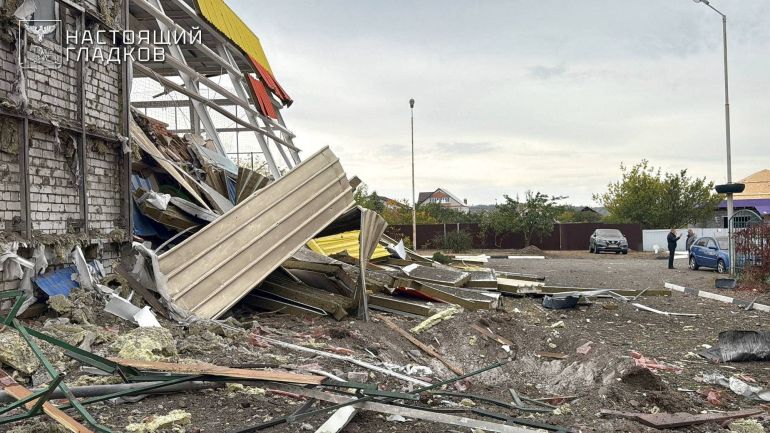Russia appears resigned to the collapse of peace efforts for the war it instigated, and prosecutes to this day, in Ukraine following President Vladimir Putin’s summit with his United States counterpart Donald Trump in Anchorage, Alaska, in August, saying whatever progress emerged from the historic meeting has all but unravelled.
Speaking to Russia’s federal assembly on Wednesday, Deputy Foreign Minister Sergey Ryabkov said, “Unfortunately, we must admit that the powerful momentum generated by Anchorage in favour of agreements … has largely been undermined.”
Recommended Stories
list of 3 itemsend of list
Ryabkov blamed European countries for much of the impasse, accusing them of wanting to wage “a war to the last Ukrainian”, according to Russia’s state-owned TASS news agency.
His comments appeared to dash any faint hopes for a quick end to the war in Ukraine, now in its fourth year, whose rapid resolution Trump had made a key campaign promise.
Casting himself as a mediator, the US president made early overtures to Moscow and pressured Ukraine to make painful territorial concessions, once even berating its President Volodymyr Zelenskyy in the White House and accusing him of “gambling with World War III”.
Trump’s diplomatic push culminated in the historic Alaska summit, but it failed to produce a truce or meaningful compromises from Moscow.
Since then, the US president has grown weary of Putin’s reticence towards a deal, saying he is “very disappointed” with the Russian leader, who claims Moscow has captured 5,000 square kilometres (1930 square miles) in Ukraine in 2025 alone.
Trump has also appeared to do a U-turn on Ukraine, recently saying the country should try to “take back” all its occupied territory with Europe’s and NATO’s help.
As the Kremlin continues to attack civilian areas on a near-daily basis, Zelenskyy has reiterated that only increased punishing sanctions, including from the US, will rein Russia in. Trump has been reluctant to take that critical next step.
Last month, US Vice President JD Vance said Washington was considering sending long-range Tomahawk cruise missiles to Ukraine, a move Putin has warned would mean a “whole new level of escalation”.
On Wednesday, Ryabkov said sending Tomahawks to Ukraine would have “severe” consequences and urged Washington to reconsider the decision.
Ryabkov said US-Russian ties were “cracking” at their “foundation” – and “the Americans are to blame for this.”
Ukrainian energy infrastructure targeted
Deadly aerial attacks between Russia and Ukraine continued early Wednesday, with each side accusing the other of targeting civilians.
In Russia’s Belgorod region bordering Ukraine, a missile attack killed three people in the village of Maslova Pristan, about 15km (nine miles) from the border, the local governor said.
The governor said the attack had partially destroyed a “social facility” and posted images of what appeared to be a sports hall, its facade partially shattered.
Moscow’s Ministry of Defence said it had intercepted 53 Ukrainian drones overnight, most of them over the Belgorod region, a frequent target of attacks.
Russia, for its part, fired at least 183 drones at Ukrainian territory between late Tuesday and early Wednesday, the Ukrainian air force said. Among the targets were rail and energy infrastructure, Ukrainian Prime Minister Yulia Svyrydenko said.
One attack seriously damaged one of Ukraine’s thermal power plants, a key energy supplier leading into the winter, according to Ukrainian electricity provider DTEK. Another strike, in the southern city of Kherson, killed two elderly people, local officials said.
‘Hybrid warfare’ in Europe
Meanwhile, European Commission President Ursula von der Leyen has blamed Russia for waging a form of “hybrid warfare” in Europe, after weeks of air incursions, cyberattacks and damage to undersea cables rattled countries including Estonia, Belgium, Denmark, Germany, Poland and Romania.
Source: Aljazeera

Leave a Reply